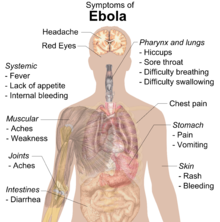When choosing a career in healthcare, becoming a nurse is always an attractive and rewarding option. When you finally become an RN, it’s a huge milestone, but it’s not always the final stop. Many nurses go on to get certifications and degrees to become advanced practice registered nurses (APRN) and continue their careers in specific nursing specializations.
Caring for patients as an RN is incredibly fulfilling, but some nurses find that they don’t want to stay bedside forever and want to explore different routes while still pursuing their passion as a nurse. Fortunately, in today’s healthcare landscape, there are numerous options available.
From nurse leadership roles to non-traditional positions in the academe, there are plenty of routes to take if you want to advance your career as an RN, each with its own set of qualifications. Let’s take a look at nine advanced nursing jobs you might want to work toward after your time as a registered nurse.
1. Nurse Practitioner (NP)
A nurse practitioner is a type of APRN who works as a nurse but can also diagnose conditions and prescribe medication as treatment independently of a physician on their team. The position is designed to bridge the gap between nurses and doctors, making for more holistic and efficient care. This position is great for nurses with strong clinical nursing experience but who now want to do their job with more autonomy.
To become an NP, you’ll typically need a Master of Science in Nursing (MSN). You must also pass the national certification exam of your chosen specialty, whether it’s family medicine, geriatrics, pediatrics, or whatever you like.
2. Nurse Anesthetist (CRNA)
Another option is to become a certified registered nurse anesthetist, or CRNA. This type of APRN can administer anesthesia during surgical procedures and can work in hospitals, dental clinics, and even outpatient care facilities. They’re trained to do pre-anesthetic assessment, develop plans for anesthesia depending on the patient’s case, and care for the patient during post-anesthesia recovery.
This position is a perfect fit for nurses who thrive in high-pressure situations or have had experience in critical care. They work closely with surgeons, so experience in that department is also great for this position. The requirements for this position include at least one year of experience working in the ICU and a Doctor of Nursing Practice (DNP) in anesthesiology.
3. Nurse Midwife (CNM)
If you have a knack for providing prenatal and birth care and find midwifery interesting, then becoming a certified nurse midwife (CNM) might be for you. In this position, you will focus on reproductive care, maternal health care, and labor and delivery for expecting mothers by providing patient care and emotional support to women. This line of work might also call for fertility and menopause counseling among your patients.
To become a CNM, you must have an active RN license and an accredited graduate degree in nurse-midwifery. You must also obtain certification from the American Midwifery Certification Board.
4. Clinical Nurse Specialist (CNS)
A clinical nurse specialist (CNS) is an APRN with an expertise in a specific clinical area, whether it’s cardiology, pediatrics, oncology, or whatever you prefer. It’s best for analytical and strategic nurses who want to make a difference by applying research to their clinical practice and improving the systems behind the clinical setting to make operations run smoother. As a CNS, you will also play a massive role in training and protocol development for your department’s staff. To become a CNS, you must have a Master’s Degree or a DNP with a clinical specialization you want to focus your efforts in.
5. Director of Nursing
After many years of RN experience, you may want to consider taking on a leadership role in your facility’s nursing department. A role like the Director of Nursing would be an excellent fit if you want to manage teams and improve the hospital systems.
This is a great choice for RNs who want to shift from a primarily bedside role to one in management, since this job entails developing policies and effective communication strategies, managing budgets, and coordinating overall staffing in the nursing department.
If you want to become the Director of Nursing, a Bachelor’s Degree in Nursing is the minimum requirement, but many employers prioritize candidates with a DNP, specifically one in Strategic Leadership. If you’re too busy with your clinical hours to get this doctoral degree, there are many reputable DNP nursing programs online to help you equip yourself for a future in a leadership role without having to stop working.
6. Chief Nursing Officer (CNO)
Another leadership role you might want to strive for in your RN career is becoming the Chief Nursing Officer, aka the highest-ranking nurse in your organization. A CNO is in charge of long-term strategy for nursing staff and aligning nursing practices with your facility’s overall goals and branding.
It’s best for RNs with a strong leadership background and is a natural next step after becoming the Director of Nursing. If you’re comfortable leading large teams and think you can mentor senior RN staff, this might be a terrific route. This role also calls for a DNP centered on Strategic Leadership or a PhD in Nursing Leadership. It also requires many years of leadership in the work setting.
7. Public Health Leadership
Want to use your nursing skills and knowledge to improve the public health sector? If so, you may be interested in pursuing a role in public health leadership. In a role like this, you help influence community health initiatives and develop health policies for your city. You’ll also manage outreach programs, specifically if you work for a government agency or a non-profit. You’ll be an advocate for health policy changes and help manage public health crises.
This route is best for RNs who care deeply about helping underserved populations who don’t have much access to healthcare. If you want to move away from bedside and want to make a system-wide change that impacts your community, it’s a great, incredibly fulfilling job to consider. An MSN in Public Health is a common requirement for positions in this field, but a DNP focused on Public Health can help as well. Experience in epidemiology is also very helpful for a role like this.
8. Nurse Educator
If you don’t want to deal with the stress of working in a clinical setting, but still want to put your nursing skills to good use, you could use your expertise and knowledge to train future RNs as a nurse educator. You’ll design a curriculum for nursing students, encourage students, assess their performance, and help them get ready for licensure. You’ll teach in nursing schools and can also conduct academic research on the side.
To become a nurse educator, the minimum requirement is an MSN or DNP focused on Education. Many academic institutions might also require specific coursework or teaching credentials.
9. Legal Nurse Consultant
You can become a Legal Nurse Consultant (LNC) and use your nursing expertise to assist lawyers in legal cases that are heavy on medical records and elements. You’ll review case files, give your expert opinion on the medical side of things, and sometimes even testify in court as an expert witness.
To become an LNC, you must have years of experience in the clinical setting. Certifications are optional, but if you want to beef up your resume, you can get certified by the American Association of Legal Nurse Consultants.
Endnote
No matter how amazing a nurse you are, there’s always room to grow. You may love your job as an RN, but at one point, you may feel like you want to explore a bigger role, whether it’s heading the nursing department at your hospital or enacting policy changes for the public health sector. Your future in the world of nursing is wide open, so start exploring these advanced nursing positions to see where your heart and passion lie.



